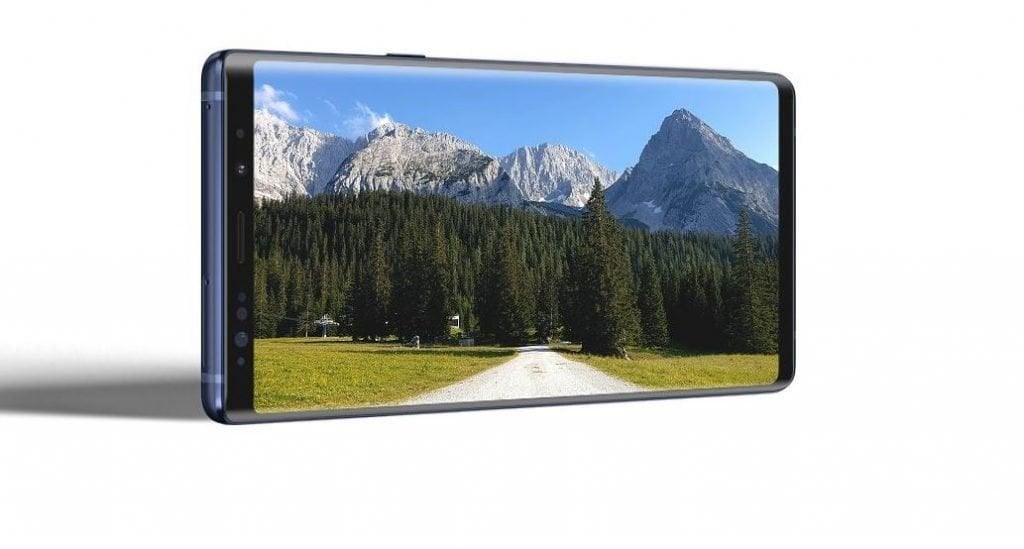Samsung went to great lengths to mock Apple when it removed the 3.5mm headphone jack from iPhone 7 and 7 Plus. Many other companies have since followed Apple in dropping the traditional audio jack from their flagship smartphones. Just a couple of years after mocking Apple, the Korean company is reportedly planning to ditch the headphone jack as early as next year. The Samsung Galaxy Note 10 could be the first jack-less smartphone from the company.
Why does Samsung want to get rid of the audio jack?
The Galaxy Note 10 is still about a year away, but we know that Samsung is already working on the device under the code-name “Da Vinci.” Now Korean publication ETNews has learned from inside sources that company was considering dropping the audio jack from the Galaxy Note 10 or Galaxy S11. It means the upcoming Galaxy S10 will still have the headphone jack.
Etnews said that Samsung is considering canceling the 3.5mm headphone jack on the Galaxy Note10 or Galaxy S11.
Do you need 3.5mm headphone jack ? pic.twitter.com/ovMU6IXrlF— ICE UNIVERSE (@UniverseIce) October 10, 2018
On the Note 10 and S11, Samsung could use a dongle with a USB-C port. Considering the devices are still a long time away, wireless headphones would become more popular by the time they come out. According to Strategy Analytics, the global wireless earphone market would reach 73.9 million units in 2019 and 100 million units in 2022, which is a significant growth from 51.9 million units last year.
The Korean publication didn’t reveal why Samsung wants to remove the audio jack. It could be because the company wants to free up more internal space for other components such as the battery. The removal of headphone jack from Samsung Galaxy Note 10 could also help boost sales of Samsung’s wireless headphones.
Consumers and industry experts have praised Samsung for keeping the audio jack around for so long. But given the success of AirPods and similar wireless earbuds, it was only a matter of time before Samsung followed Apple. The electronics industry is rapidly moving toward a wireless future. We wouldn’t be surprised if the USB Type-C port also starts disappearing in the next few years.
The Samsung Galaxy Note 10 will likely debut in August 2019. The Korean company has traditionally unveiled new Note phablets in August. This year’s Note 9 was unveiled on August 9th and went on sale a couple of weeks later. The latest report should be taken with a bit of skepticism. The phablet is about ten months away, and there is a good chance Samsung hasn’t yet finalized its design.
Samsung Galaxy Note 10 rumored specs
The Galaxy Note line tends to borrow features and design elements from the Galaxy S series. So, we expect the Samsung Galaxy Note 10 to follow the upcoming Galaxy S10. The Note 10 could feature an ultrasonic fingerprint sensor to let you unlock the device and authenticate payments simply by placing your finger on the screen. It would also offer 5G support. Samsung will launch its first 5G phone in the first half of 2019, around the same time carriers in the US and South Korea start rolling out 5G services.
According to the rumor mill, the Galaxy Note 10 could also feature a triple camera system on the back. It could consist of a 12MP main lens, a 16MP ultra-wide-angle lens, and a 12MP telephoto lens. Samsung’s rivals such as Huawei and LG Electronics have already launched phones with triple rear cameras.
The Samsung Galaxy Note 10 is also rumored to feature a dedicated neural processing unit (NPU) to take care of AI tasks. Recently, tipster Ice Universe shared the LinkedIn profile of a former Samsung employee to suggest that the NPU could be an integral part of the next-gen Exynos processor. The employee has since left Samsung to work at Qualcomm.
Samsung may have completed its second-generation NPU architecture internally, which may be piggybacked on the Exynos 9820 processor. pic.twitter.com/kIUNZkQSRc
— ICE UNIVERSE (@UniverseIce) October 6, 2018
Ice Universe claims that the NPU could be intended for the Exynos 9820 chips that are rumored to power the Galaxy S10 and Note 10. The Korean company could use the AI chip to improve natural language processing, machine vision, security, and image processing. It could give the Bixby AI assistant – which still lags far behind Google Assistant, Alexa, and even Siri – the much-needed AI capabilities.












